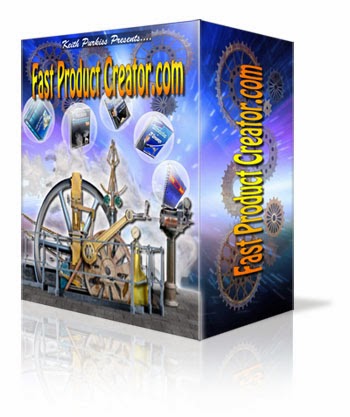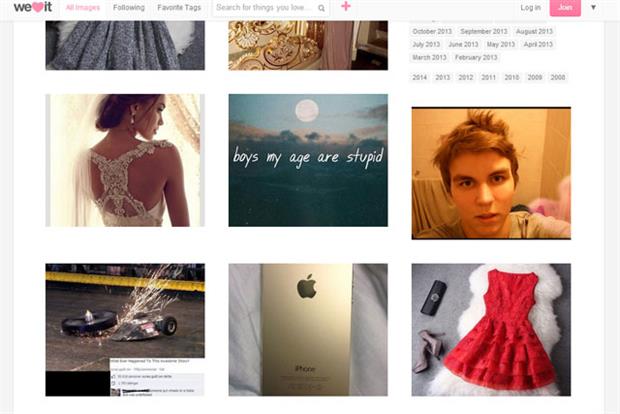
Google’s announcement that it is snapping up
home automation firm Nest for a cool
$3.2 billion
in cash had us looking back at Google’s other big acquisitions. The
internet giant has purchased nearly 150 companies — some for people,
some for parts or both.
Here’s the countdown of Google’s 10 biggest acquisition deals so far,
and a look at how the acquired companies have been brought into the
Google fold.
10. AdMeld – $400 Million, June 2011
When Google bought
AdMeld,
the four year-old ad tech company already had relationships with big
publishers including the Weather Channel, IDG TechNetwork and The
New York Times Company. AdMeld is a sell side platform (SSP) designed to help publishers optimize web and mobile ad inventory. Google
integrated
many of AdMeld’s features into the DoubleClick Ad Exchange (AdX) to
combine “the strengths of an SSP and an exchange into one platform”.
9. Wildfire - $450 Million, August 2011

When the news broke that
Wildfire
would be Google’s next big acquisition of 2011, reports put the deal at
$250 million. An investor then verified with TechCrunch that the
acquisition price was in fact
$350 million plus another
$100 million
added to the pot in earn-outs and retention bonuses to ensure
Wildfire’s 400-odd employees stuck around. That puts the total price tag
for the
social media marketing
platform at $450 million. Google made the bid for Wildfire after
reportedly losing out on its competitor Buddy Media to Salseforce.
8. Postini - $625 Million, July 2007

Postini’s enterprise-level
software security and
compliance solutions,
which include message security, archiving, encryption, and policy
enforcement solved the security piece for Google Apps. Then Google CEO,
Eric Schmidt
said of the deal, “With the addition of Postini, our apps are not just simple and appealing to users — they can also streamline the complex
information security mandates within these organizations.” In 2013, Google
transitioned
Postini’s services to the Google Apps platform and Google Apps Vault,
which includes Gmail, Calendar, Drive, Docs, Sheets and Slides.
7. ITA Software – $676 Million, July 2010

In a controversial move, Google announced it would buy travel
reservations software company ITA, and let the world know it was bracing for a regulatory battle. As
Greg Sterling wrote
when the news broke, “ITA is behind the reservations systems for many
major airlines around the world, as well as travel sites such as Kayak,
Orbitz, Hotwire and many others. Bing Travel also relies on the
software. Google, if allowed to complete the acquisition, would thus own
the ‘infrastructure’ behind its direct competitor’s travel product.”
Federal scrutiny did come, but in April 2011, the Justice Department
OK’d the deal
with conditions including the requirement to license ITA software to
airfare websites on reasonable terms through 2016. Google Flights, which
launched in September 2011, is powered by ITA technology.
6. AdMob – $750 Million, November 2009

It looked like Google would face an FTC fight when it moved to
acquire mobile display ad network AdMob in April 2009. Just over a year later, the FTC
opted not to
block the deal, largely in reaction to Apple launching its own mobile
ad network, iAd. Google got both the AdMob technology and talent with
the deal. DoubleClick for Publishers is integrated with the AdMob
Network. In June 2012, Google announced it had finalized the integration
of AdMob’s
mobile app inventory into AdWords. Google announced several more updates designed for
app developers at the 2013 I/O Conference.
5. Waze - $1.3 Billion, June 2013

Rumors first
started flying that Google would buy crowd-sourced (i.e. social) mapping and traffic app in January 2013. Google made the announcement
official in June. Google
avoided an anti-trust challenge by the FTC and moved ahead with product integrations after sealing the deal. In August 2013, Google added Waze traffic to
Google Maps and search for Waze users. Then in November 2013, the Traffic with Waze card rolled into
Google Now, and comedian Kevin Hart became the first
celebrity Waze voice.
4. YouTube - $1.65 Billion, October 2006

At the time it announced it would be snapping up the less-than-two-year-old YouTube, Google had a
market capitalization
of $128 billion. Today Google’s market cap tops $375 billion. After
struggling to make money for several years, YouTube is on a roll,
reportedly taking in
$5.6 billion in gross ad revenues in 2013, netting close to $2 billion. The video site is now at the heart of Google’s
efforts to attract more brand dollars.
3. DoubleClick – $3.1 Billion, April 2007

Now demoted to Google’s third-largest acquisition, the DoubleClick
deal put Google in the display advertising game, and turned out to be worth spending over
20 times
its estimated revenues at the time. It’s amazing to think DoubleClick
was already 11 years-old when Google beat out Microsoft in a bidding war
for the ad software and network firm. Having launched in 1996, it’s two
years older than Google itself. MySpace and America Online were listed
among its
customers at the time of the acquisition. Today, Google’s display ad network has generated over
$3 billion in ad revenues in each of the last five consecutive quarters.
2. Nest - $3.2 Billion, January 2014

Drumroll
please … the sizable Nest deal lands at number two on the list.
Google’s bid for the smart thermostat and smoke detector maker comes
less than two weeks after Re/Code reported that the startup was
closing in on a $150 million
round of funding, which would have put its value over the $2 billion
mark. Google’s entry into the smart home raises even more consumer
privacy concerns. In attempt to assuage fears, Google says Nest will
continue to operate under current CEO Tony Faddell and as its own brand.
Given its track record and the clear product synergies, though, it’s
hard to take that promise at face value.
Over the past year, Andy Rubin’s stealth robotics group at Google picked up eight
robotics companies, including the December acquisition of
Boston Dynamics.
The terms of those deals have not been disclosed. What role Nest will
play here remains to be seen, but there are clear synergies in the areas
of robotics and better machine learning, not to mention Google Glass,
that they’re certainly thinking about.
1. Motorola Mobility – $12.5 Billion, August 2011

This was a doozy of a deal. Google bought Motorola Mobility for
its patents and mobile hardware
to boost the Android ecosystem. Motorola Mobility had already been
running all of Google’s Android smartphones. Nest skeptics can at least
look to Motorola as an example of Google keeping an acquisition as a
separate entity (forced by regulatory concessions), if not for its
economic performance. The patent portfolio Google placed much of its bet
on hasn’t held its value, and
the division continues to lose money. Google seems to be taking the long view, though; Motorola continues to roll-out
new Android phones.
Other notable Google acquisitions that didn’t make the list include
Zagat,
the restaurant reviews site, was bought up for $150 million in
September 2011 and is now incorporated into Google Maps and Google
Places. The product feed management service,
Channel Intelligence, now incorporated into Google Shopping, was acquired in February 2013 for $125 million.
bron: marketingland
There was a
tipping point
last year that has major implications for business and brands. It will
impact publishing and marketing strategies and tactics in the future.
One of the worlds biggest music stars ignored the traditional mass
media product launching process. She
bypassed the “normal” mass media release of a radio campaign, multiple TV appearances and retail and consumer
brand promotions.
Instead she announced it on Instagram to her 8 million followers with
the word “Surprise” and proceeded to launch the 14 songs and
accompanying 17 videos on iTunes.
It was a success and it exceeded the album downloads of the previous album which had used the traditional
marketing model. Its a
trend that is not going away anytime soon.
Build your own networks now!
Businesses who are relentless in building a following on
social media
are in fact creating their own publishing platforms, growing their
marketing channels and content distribution networks. It is a
digital asset that grows every year. Over time it can can provide huge leverage and marketing independence if done right.
So with that in mind let’s have a look at where the major social media networks are up to at the start of 2014.
Social web demographics
Social media is a blur of tweets, shares and content. No longer is
it just used by the young and the restless. It is global and embedded in
every corner of the web.
So some questions. Which age groups are using social media, what
countries are big Facebook users and what percentage are using mobile to
access social media?
This is the who and the where of social media users.
- 72% of all internet users are now active on social media
- 18-29 year olds have an 89% usage
- The 30-49 bracket sits at 72%
- 60 percent of 50 to 60 year olds are active on social media
- In the 65 plus bracket, 43% are using social media
- Time spent on Facebook per hour spent online by country. Here are
the top three. USA citizens get the top gong at 16% followed by the
Aussies at 14 minutes and the Brits at 13 minutes.
- 71% of users access social media from a mobile device.
The paradigm of social media only being used by the younger generation should be put to rest now.
Facebook
Facebook is still the biggest kid on the block, but there are some
pundits predicting that by 2016 Google+ will surpass Facebook on “social sharing”.
Here are some of the latest figures to mull over.
- There are now over 1.15 billion Facebook users
- One million web pages are accessed using the “Login with Facebook” feature
- 23 percent of Facebook users login at least 5 times per day
- 47% of Americans say Facebook is their #1 influencer of purchases
- 70% of marketers used Facebook to gain new customers
Google+
Prying the numbers out of Google for Google+ has always been a
challenge. A bit like getting a date with the prettiest girl in the
class. Not impossible but it doesn’t happen very often.
So what are the latest numbers?
- There are now over 1 billion with Google+ enabled accounts
- It has reached 359 million monthly active users
- Google+ is growing at 33% per annum.
- The 45 to 54 year old bracket increased its usage on Google+ by 56% since 2012
When you consider that Google+ has only been around for less than
three years, then it is a success on many levels. So Google must be
happy with with its investment, which is north of $500 million that it
initially invested in Google+
Twitter
Twitter has to be taken seriously. Last year it took off its short
pants and become a public company. So what is happening in the
Twittersphere?
- There are now over 550 million registered users
- 34% of marketers use Twitter to successfully generate leads
- Twitter was the fastest growing network with a 44% growth from 2012-2013
- 215 million monthly active users
Twitter has also made some changes in the last few months that has
made it more visual and engaging. Business should no longer be ignoring
the 140 character pip squeak.
The others
We haven’t mentioned some important social media channels. These
include. Pinterest, Instagram, LinkedIn, YouTube, Tumblr, Vine,
Slideshare and many others.
This year expect the visual social media networks to hit more home runs.
Keep an eye on these two:
- Pinterest with 20 million active monthly users
- Instagram with 150 million active monthly users.
Here is an Infographic from
Search Engine Journal that provides a visual medium for the social media facts and statistics you should know in 2014.
Source of Infographic:
Search Engine Journal
What about you?
Any surprises? Are you growing your social networks fans and followers? Which social network works best for you.
Look forward to your stories and insights in the comments below
Want to learn how to make your blog, business and content a success with social media marketing?
My book
– “Blogging the Smart Way – How to Create and Market a Killer Blog with Social Media” – will show you how.
It is now available to download. I show you how to create and build a
blog that rocks and grow tribes, fans and followers on social networks
such as Twitter and Facebook. It also includes dozens of tips to create
contagious content that begs to be shared and tempts people to link to
your website and blog.
Read more at http://www.jeffbullas.com/2014/01/17/20-social-media-facts-and-statistics-you-should-know-in-2014/#iq76WXR4JZPYwhmS.99
There was a
tipping point
last year that has major implications for business and brands. It will
impact publishing and marketing strategies and tactics in the future.
One of the worlds biggest music stars ignored the traditional mass
media product launching process. She
bypassed the “normal” mass media release of a radio campaign, multiple TV appearances and retail and consumer
brand promotions.
Instead she announced it on Instagram to her 8 million followers with
the word “Surprise” and proceeded to launch the 14 songs and
accompanying 17 videos on iTunes.
It was a success and it exceeded the album downloads of the previous album which had used the traditional
marketing model. Its a
trend that is not going away anytime soon.
Build your own networks now!
Businesses who are relentless in building a following on
social media
are in fact creating their own publishing platforms, growing their
marketing channels and content distribution networks. It is a
digital asset that grows every year. Over time it can can provide huge leverage and marketing independence if done right.
So with that in mind let’s have a look at where the major social media networks are up to at the start of 2014.
Social web demographics
Social media is a blur of tweets, shares and content. No longer is
it just used by the young and the restless. It is global and embedded in
every corner of the web.
So some questions. Which age groups are using social media, what
countries are big Facebook users and what percentage are using mobile to
access social media?
This is the who and the where of social media users.
- 72% of all internet users are now active on social media
- 18-29 year olds have an 89% usage
- The 30-49 bracket sits at 72%
- 60 percent of 50 to 60 year olds are active on social media
- In the 65 plus bracket, 43% are using social media
- Time spent on Facebook per hour spent online by country. Here are
the top three. USA citizens get the top gong at 16% followed by the
Aussies at 14 minutes and the Brits at 13 minutes.
- 71% of users access social media from a mobile device.
The paradigm of social media only being used by the younger generation should be put to rest now.
Facebook
Facebook is still the biggest kid on the block, but there are some
pundits predicting that by 2016 Google+ will surpass Facebook on “social sharing”.
Here are some of the latest figures to mull over.
- There are now over 1.15 billion Facebook users
- One million web pages are accessed using the “Login with Facebook” feature
- 23 percent of Facebook users login at least 5 times per day
- 47% of Americans say Facebook is their #1 influencer of purchases
- 70% of marketers used Facebook to gain new customers
Google+
Prying the numbers out of Google for Google+ has always been a
challenge. A bit like getting a date with the prettiest girl in the
class. Not impossible but it doesn’t happen very often.
So what are the latest numbers?
- There are now over 1 billion with Google+ enabled accounts
- It has reached 359 million monthly active users
- Google+ is growing at 33% per annum.
- The 45 to 54 year old bracket increased its usage on Google+ by 56% since 2012
When you consider that Google+ has only been around for less than
three years, then it is a success on many levels. So Google must be
happy with with its investment, which is north of $500 million that it
initially invested in Google+
Twitter
Twitter has to be taken seriously. Last year it took off its short
pants and become a public company. So what is happening in the
Twittersphere?
- There are now over 550 million registered users
- 34% of marketers use Twitter to successfully generate leads
- Twitter was the fastest growing network with a 44% growth from 2012-2013
- 215 million monthly active users
Twitter has also made some changes in the last few months that has
made it more visual and engaging. Business should no longer be ignoring
the 140 character pip squeak.
The others
We haven’t mentioned some important social media channels. These
include. Pinterest, Instagram, LinkedIn, YouTube, Tumblr, Vine,
Slideshare and many others.
This year expect the visual social media networks to hit more home runs.
Keep an eye on these two:
- Pinterest with 20 million active monthly users
- Instagram with 150 million active monthly users.
Here is an Infographic from
Search Engine Journal that provides a visual medium for the social media facts and statistics you should know in 2014.
Source of Infographic:
Search Engine Journal
What about you?
Any surprises? Are you growing your social networks fans and followers? Which social network works best for you.
Look forward to your stories and insights in the comments below
Want to learn how to make your blog, business and content a success with social media marketing?
My book
– “Blogging the Smart Way – How to Create and Market a Killer Blog with Social Media” – will show you how.
It is now available to download. I show you how to create and build a
blog that rocks and grow tribes, fans and followers on social networks
such as Twitter and Facebook. It also includes dozens of tips to create
contagious content that begs to be shared and tempts people to link to
your website and blog.
Read more at http://www.jeffbullas.com/2014/01/17/20-social-media-facts-and-statistics-you-should-know-in-2014/#iq76WXR4JZPYwhmS.99

















 Google’s announcement that it is snapping up
Google’s announcement that it is snapping up  When the news broke that
When the news broke that  Postini’s enterprise-level
Postini’s enterprise-level  In a controversial move, Google announced it would buy travel
In a controversial move, Google announced it would buy travel  It looked like Google would face an FTC fight when it moved to
It looked like Google would face an FTC fight when it moved to  Rumors first
Rumors first  At the time it announced it would be snapping up the less-than-two-year-old YouTube, Google had a
At the time it announced it would be snapping up the less-than-two-year-old YouTube, Google had a  Drumroll
please … the sizable Nest deal lands at number two on the list.
Google’s bid for the smart thermostat and smoke detector maker comes
less than two weeks after Re/Code reported that the startup was
Drumroll
please … the sizable Nest deal lands at number two on the list.
Google’s bid for the smart thermostat and smoke detector maker comes
less than two weeks after Re/Code reported that the startup was  This was a doozy of a deal. Google bought Motorola Mobility for
This was a doozy of a deal. Google bought Motorola Mobility for 

 Without a doubt, the fastest-growing
Without a doubt, the fastest-growing 









